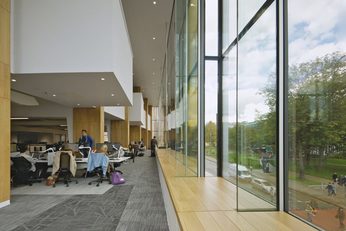 Inside the Commons - Photo Courtesy of Sheppard Robson Inside the Commons - Photo Courtesy of Sheppard Robson The incredible part about this space is that it is a resource hub. Often, there are places that inspire us because of how they look and then there are places that inspire us because they provide us with the tools to be inspired. This is both. The Learning Commons here runs workshops through its My Learning Essentials program that tackle everything from academic referencing to time management to “successful searching”. Their team also runs a program called DigiLab that allows students and staff to “explore tomorrow’s technology” by trying your hand at the newest software and tech gear along with learning how to code. The power of an open space and a place to explore one’s potential through tech and workshops is palpable. One of the greatest learning essentials is having a place to be and think freely. Peering through the clear glass windows of the commons onto the bustling Mancunian streets, one can’t help but feel hopeful for the future. When the learning commons was built in 2012, 30 student artists and poets were welcomed to decorate the walls with inspiration for future students. One poem by Meaghan J. Couture stands out. Here is an excerpt: As the moon illuminates the sky and dances with the stars, In buildings such as the Learning Commons, students are provided with an open space where they can seek new ideas and work to find inspiration. Manchester’s promise of tomorrow is in these inner workings. Connected with this idea of utilizing space in Manchester, the artist Naho Matsuda has found a way to generate poetry out of the traffic and events that take place in Mancunian city spaces every day. 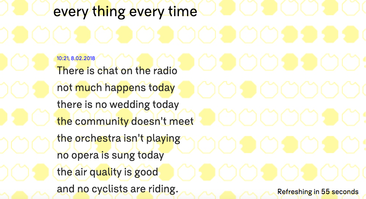 A poem generated by everythingeverytime.net A poem generated by everythingeverytime.net Matsuda recently designed a computer program that generates poetry from information about Manchester. The computers are situated around the city and select random bits of information on local topics such as weather, healthcare, schools, how many babies are born, cats, dogs and dance halls to create “impractical poetry”. All of this is made accessible online through the project website, everythingeverytime.net. Thus, the act of exploring spaces to their fullest potential becomes poetry in motion. The idea of finding this poetry in everyday epiphanies and daily life is so normal but yet, remarkable. Poetry is written in the places where we can circulate and share ideas and stories of our lives and studies freely. Look closer. You can’t miss it. Listen to the CBC Podcast coverage about Matsuda's work here (at 41:05 mins) Comments are closed.
|
CategoriesArchives
October 2023
|
|
Literacy Quebec
4590 rue de Verdun suite 206 Montreal, QC H4G 1M3 |

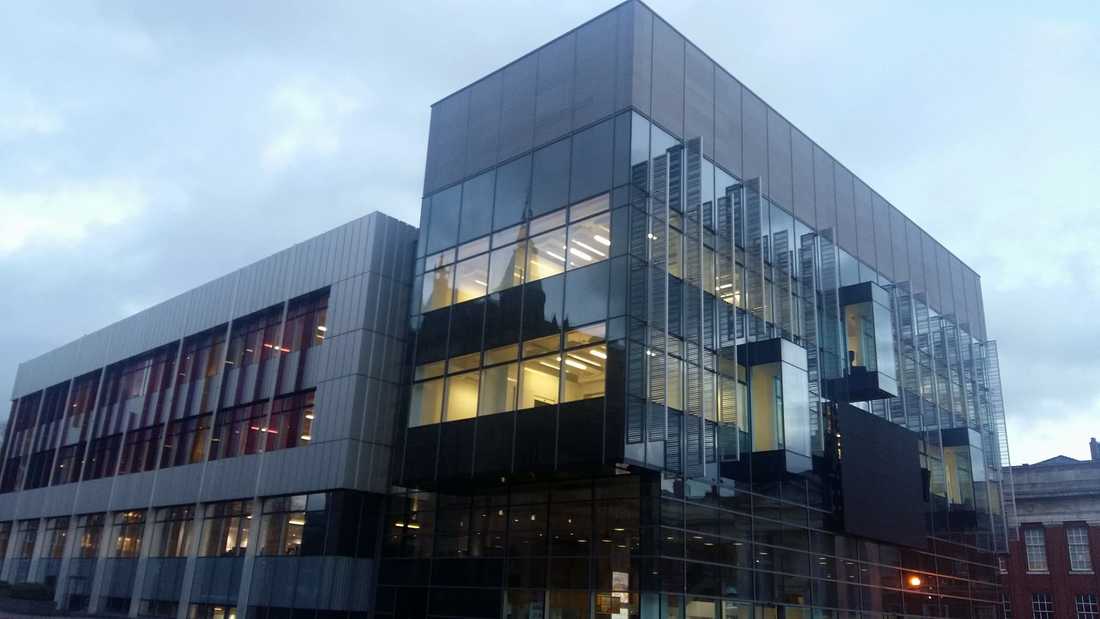
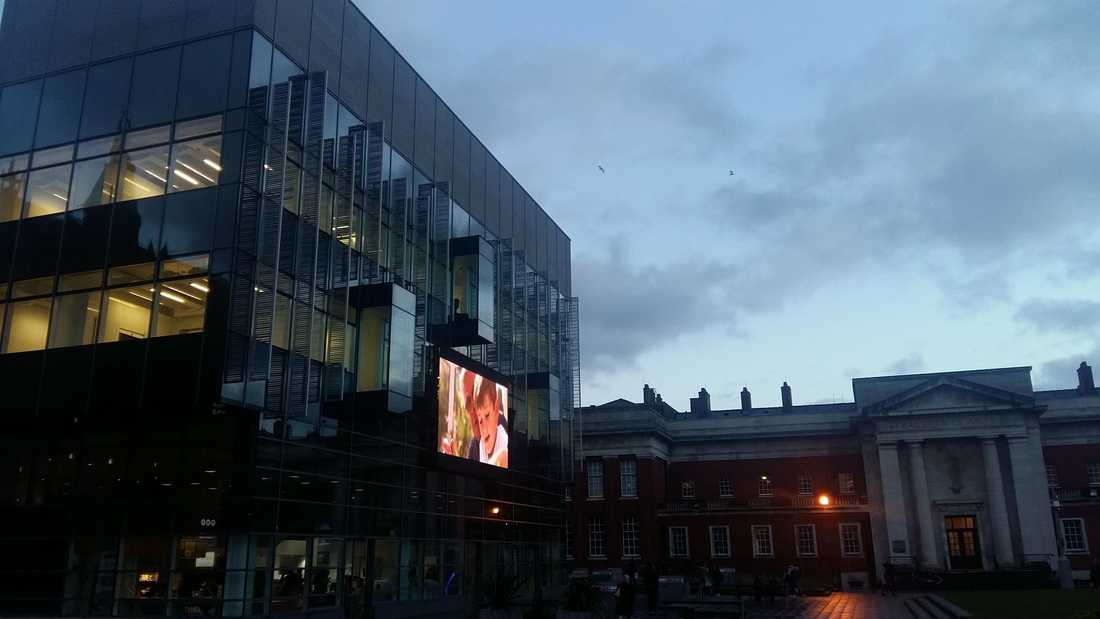
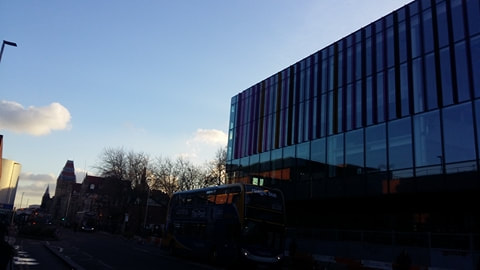
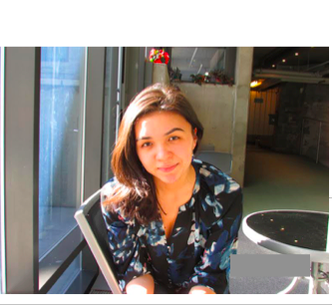
 RSS Feed
RSS Feed

